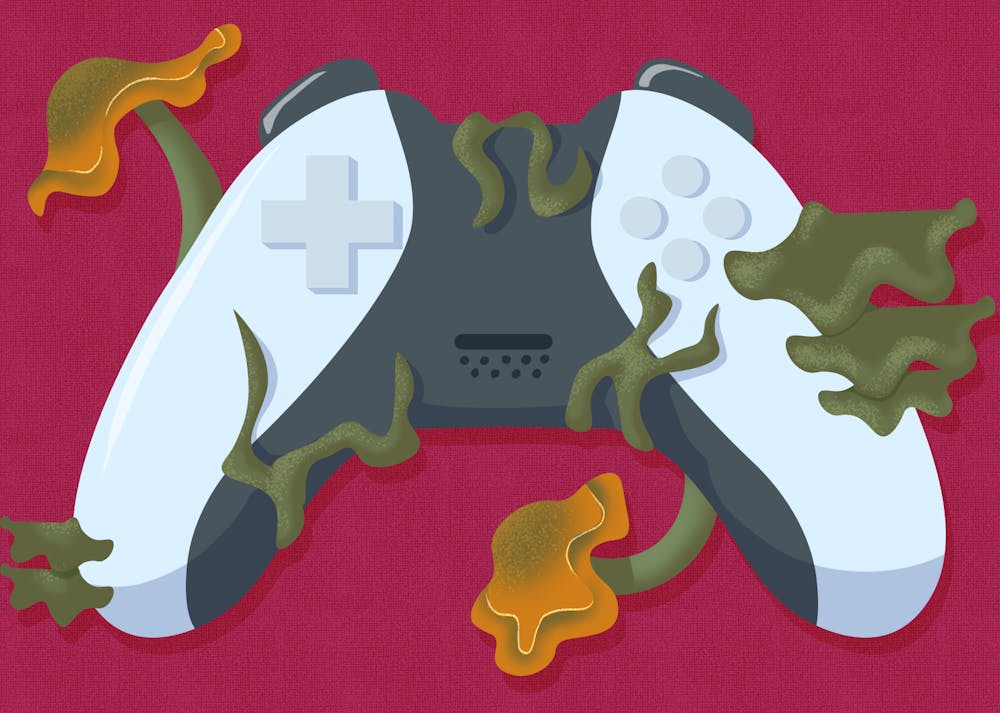The history of video game adaptations in Hollywood is filled with box office failures and disastrous critic reviews.
From the 1993 colorless rendition of "Super Mario Bros." to the 2005 sloppy mess that was "Doom," there is a long line of extremely successful video games not panning out on the big screen.
While there have been some successful adaptations over the years, like "Pokémon: Detective Pikachu" in 2019 and "Sonic The Hedgehog" in 2020, and there are upcoming adaptations that are highly anticipated such as "The Super Mario Bros. Movie" in April and the "God of War" show on Amazon Prime Video, the general rule in the pop culture world is that they rarely work.
HBO’s 2023 series "The Last of Us" is an exception to this rule – and it’s shaking the entertainment industry to its core.
Never before has a video game adaptation in Hollywood been this well-received critically with "The Last of Us." It currently boasts a 96 percent rating on Rotten Tomatoes, an American review-aggregation website for film and television. On IMDb, the show has a 9.0/10 rating.
The Guardian called the show "one of the finest TV shows you will see this year."
While there is no box office to measure the financial success of the project, the viewership data paints a clear picture: "The Last of Us" is HBO’s next hit show. The series premiere, with 4.7 million people, only trails the "Game of Thrones" spinoff "House of the Dragon" premiere in terms of most viewers.
Considering "House of the Dragon" is built off the back of one of the most popular TV shows and book franchises of all-time in the "Game of Thrones," the number is noteworthy for "The Last of Us," a property considerably less well known.
Viewership has steadily climbed as the season progresses; 7.5 million people tuned into the fourth episode while it aired during the 65th Grammys. The season finale, "Look for the Light," drew a series high of 8.2 million viewers.
"The Last of Us" is based on the 2013 game by the video game developer Naughty Dog and was released exclusively on PlayStation 3.
The story is set 20 years after a virus outbreak, the Cordyceps fungus, kills most of the world’s population and turns them into bloodthirsty beings referred to as "infected." The main protagonist is Joel Miller (played by Troy Baker in the game and Pedro Pascal in the show), a man who is hired to smuggle a 14-year-old girl named Ellie (played by Ashley Johnson in the game and Bella Ramsey in the show) out of a militarized quarantine zone in Boston.
The mission becomes much deeper than that though as the pair set out to trek across the post-apocalyptic landscape that used to be the United States of America.
While the “The Last of Us,” is a game centered around a deadly virus, the story argues – rightly so I would agree – that the real monster when all hope is lost is humanity itself. You don’t have to avoid just the infected in “The Last of Us.” There are bands of raiders and looters who will kill you just to get the shoe laces from your feet. In a lawless society devoid of morals, anything and everything goes.
What "The Last of Us" does differently than other previous video game adaptations is exactly that – it adapts parts of the game to make for better storytelling on the screen. Changing core elements of the game requires bravery. Co-creators Craig Mazin and Neil Druckmann – who is also the co-president of Naughty Dog – displayed their courage brilliantly in the first season.
The third episode, "Long, Long Time" was a beautiful example of this.
In the game when you come across Bill, you eventually learn that he used to have a partner, but the relationship turned sour. Bill’s former partner, Frank, leaves their home and commits suicide after getting infected in another part of town. When playing the game, Joel finds a very nasty note left from Frank addressed to Bill.
Instead, the third episode focused on building out a loving and caring relationship with the two characters. Frank helped Bill, who is portrayed as a hardcore conservative in the show, accept the reality that he is gay, and that it’s okay to love – and more importantly, to be loved.
In a world filled with devastation and death, third episode "Long, Long Time" showed that love can still flourish even in the worst of circumstances. It’s hard to capture the emotion I felt in this episode watching these two characters fall in love. As the pair sat down for their last dinner together at the end of the episode, cold tears began to stream down my warm cheeks as the weight of the storytelling hit me right in the face.
At the same time, "The Last of Us" showed us the danger of love, and the lengths we’ll go to protect those we care about the most. The duality in themes the show presents is what makes it such a fascinating watch.
The season finale artfully set up season two, to be released in early 2024 or late 2025, which will be based on the 2020 video game sequel "The Last of Us Part II." Joel's decision to save Ellie will have major ramifications that will be felt throughout the rest of the show's run on TV, which is expected to last longer than just two seasons.
With "The Last of Us," norms that have long been established are being torn down. What works in a video game can indeed work on the big screen. The success of "The Last of Us" is better for the world of entertainment, and represents a cultural landmark in the evolution of video game adaptations.
Edited by Claire van Doren, Jasmine Kabiri and Caera Learmonth.
Reach the reporter at lstanleycribe@gmail.com and @LSscribe on Twitter.
Like The State Press on Facebook and follow @statepress on Twitter.

Logan Stanley is a senior reporter at The State Press. He previously served as the managing editor of the school newspaper at Eastern Washington University. He has four years experience as a freelance journalist and is a graduate student in the master of arts of sports journalism program.




